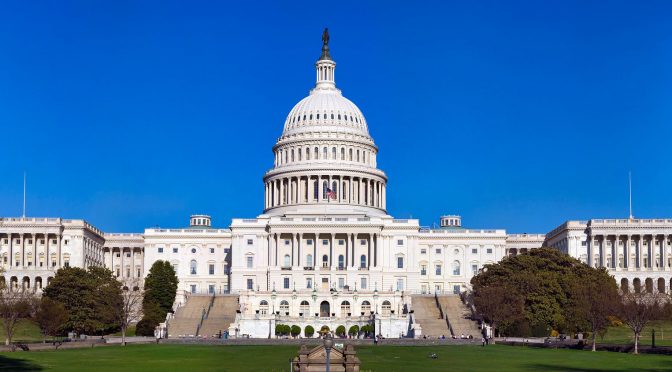Not only will the Protecting the Right to Organize Act (PRO Act) restore the right of workers to freely and fairly form a union, this landmark worker empowerment, civil rights, and economic stimulus legislation will also help us build back better following the pandemic and recession.
As we recover from the pandemic and economic recession, the PRO Act will help ensure good jobs for working people. All workers need the collective power of a union to help achieve decent pay, benefits, flexible schedules, fair treatment, and basic respect and dignity at work. The PRO Act also addresses inequality. Research shows that the rapid growth of unions in the 20th Century dramatically reduced inequality by extending union protections and advantages to all workers across entire industries. A union contract is the best tool we have to close racial and gender wage gaps and ensure dignity and fair treatment for all workers.
Economists increasingly understand that inequality is bad for economic growth. Growing inequality and a shrinking middle class leaves the majority of people economically insecure and unable to invest or participate in our economy.
The PRO Act and ABC Test: Freelancers Need Not Worry
Misclassification is a serious issue that affects all types of freelancers, including musicians. The PRO Act expands the definition of employee so that some independent contractors and freelancers can join a union to advocate for higher wages, better working conditions, and protections, if they choose to do so. The provision of the PRO Act that will define which independent contractors and freelancers can take advantage of these rights is the ABC test.
The PRO Act adopts the ABC test only for purposes of the NLRA and the right to form a union in the private sector.
The ABC Test
An individual is considered an employee unless all three of the following are true:
- The worker is free from the control and direction of the hiring entity in connection with the performance of the work and;
- The worker performs work that is outside the usual course of the hiring entity’s business; and
- The worker is customarily engaged in an independently established trade, occupation, or business of the same nature as that involved in the work performed.
If all three are true, the individual is defined as an independent contractor and therefore not subject to NRLA laws related to organizing and union representation.
Unfortunately, there is much misinformation surrounding the PRO Act and the ABC test and what it might mean for freelancers. Here are some FAQs that clarify the purpose and scope of the ABC test.
Q: What is the purpose of the ABC test?
The ABC test is used to determine who qualifies for protection under federal law if and when they choose to organize, join a union, or bargain collectively.
Q: Will the PRO Act and ABC test cause freelance musicians to lose work?
No, but the PRO Act may allow them to join a union or engage in collective bargaining, if they choose to do so. Those who are not interested in engaging in collective action would be unaffected by the PRO Act and they are free to continue to work as freelance musicians and contractors.
Q: Will the PRO Act outlaw independent contracting or gigging and make freelance work contracts illegal?
Nothing in the PRO Act would outlaw any kind of work arrangement. Freelance musicians and other creative professionals are free to continue to do freelance work.
Q: Would the PRO Act force the person I’m working for to hire me as a W-2 employee?
The PRO Act does not affect any current laws that determine whether someone is hired as a W-2 employee, including tax law, minimum wage law, overtime laws, unemployment insurance, workers’ compensation, etc.
Q: Is the PRO Act ABC test the same as California’s A.B. 5?
It is not the same. A.B. 5 redefines who is an “employee” in California, under a broad range of state employment laws. The PRO Act does not affect any of those laws. It only affects federal law governing private sector unions and organizing rights.
Q: Why does the ABC test need to be a part of the PRO Act, anyway?
It is essential because employers often try to stop workers from organizing by falsely claiming that they are independent contractors, not employees. The ABC test protects the rights of musicians to engage in collective action and organize, if and when they choose to do so.


